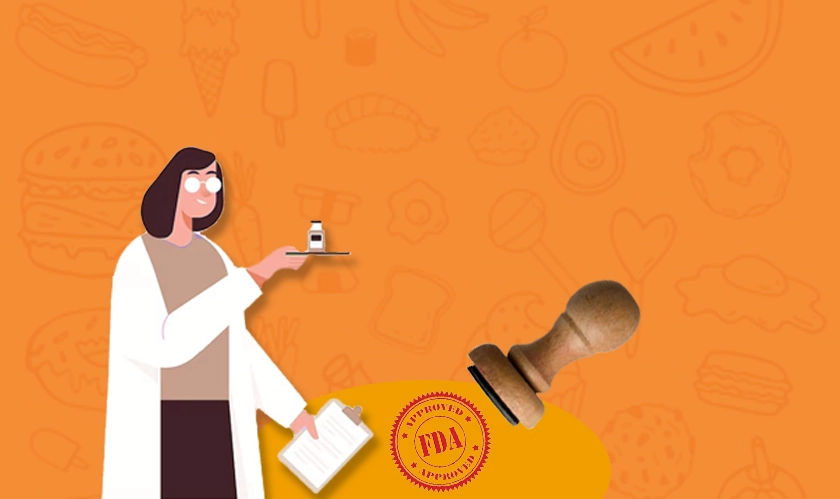Home Industry Food and beverage How Food Label Makers Enhance ...
Food And Beverage

CIO Bulletin
29 April, 2024
Food is an essential part of life, which makes food manufacturing a trillion-dollar industry. However, this makes life even harder for food manufacturers, as they have to implement meticulous procedures that ensure that no one is endangered by their practices or products.
Therefore, they must always assess their operations, identify sources of potential problems, and implement required solutions throughout their entire manufacturing process. Proper food labeling is one way of realizing these goals.
This article outlines the various ways in which food label makers keep manufacturers compliant with regulations.
Can food labels make the manufacturing process safer?
Food manufacturers always seek solutions and technologies to simplify their processes and help them comply with industry requirements. Food label makers make this possible.
Some food labels are primarily used in retail settings to display product information and pricing on store shelves. In contrast, others are designed for manufacturing to enhance food safety efforts and contribute to industrial operations.
How food label makers improve food label management and compliance
Labeling can be the most complicated process during the manufacturing process lifecycle of food products, but it is still critical to success.
Food manufacturers must consistently produce compliant, precise, and compelling labels despite increasing competition, frequent changes in consumer needs and tastes, changes in regulations, or the challenges they encounter while sourcing ingredients from all over the world in an attempt to meet the demands of diverse, high-quality products.
Here are some of the best practices that food label makers use to help preserve the manufacturer’s brand reputation and enhance their competitive edge while ensuring they follow all the regulations and deliver the best possible labels.
Automation for less litigation risk and compliance
Changes in country and local regulations can sometimes be too fluid to keep up with on an ad hoc basis, and mistakes can lead to severe consequences. Misleading or non-compliant labeling can result in a forced product recall, which is costly to companies.
In addition, advocacy groups, competitors, and even consumers may not hesitate to prosecute, and food labels and packages are often the main focus of such contests.
To reduce the consequences of non-compliance, such as litigation fees and wounded reputation, consider utilizing a nutrition label maker for enhanced compliance that comes with built-in regulatory design and content features like declaration of allergens, nutritional content, and claims.
Whether introducing new products, repackaging existing ones, or reformulating existing ones, industry-specific label management functions can automatically apply the latest exemptions and rules regarding label placement, content, and format.
Consolidating label data for consistency
Consumers are increasingly demanding continuous product transparency and innovation, and in response, many food manufacturers are diversifying their offerings, leading to a growing number of Stock Taking Units (SKUs). SKUs are unique identifiers assigned to each distinct product for easy tracking and management.
As much as each SKU needs its label, the label has to be consistent with others in the same brand or product line. Additionally, any changes in packaging for different distribution channels could interfere with the content and placement of the labels, while other aspects remain the same.
Label makers help manufacturers meet these demands by consolidating nutritional claims, ingredient statements, formulas, and label designs in a central repository, which can be the source for all new content and designs.
When a label management system also provides templates for allergen declarations, claims, and nutrition statements, even the least experienced employee can complete label design tasks efficiently and accurately.
Having a single source not only lets you avoid potentially costly mistakes but also enables you to respond to new SKU labeling more cost-effectively and much faster.
Supporting traceability through all systems integration
Today more than ever before, consumers want to know more about where the ingredients listed on the food packages come from.
A nutrition food label maker lets you provide information about the origin of each ingredient in every batch, thus building trust among even the most skeptical shoppers. Food traceability becomes significant when something goes wrong. You can comply with supply chain visibility requirements by integrating reliable labeling systems.
Future food labeling trends and innovations
With the rapid technological advancements, more food label makers will likely incorporate advanced features like machine learning algorithms and Artificial Intelligence (AI) to enhance compliance and efficiency.
The predictive analytics and real-time updates they can offer will empower manufacturers to stay ahead of evolving regulations and market trends.
Conclusion
The food manufacturing industry is continuously becoming more regulated and consumer-centric. This makes compliance with labeling regulations non-negotiable.
Food label makers serve as vital resources for navigating the complex regulatory landscape while achieving accuracy, consistency, and efficiency in labeling practices.







